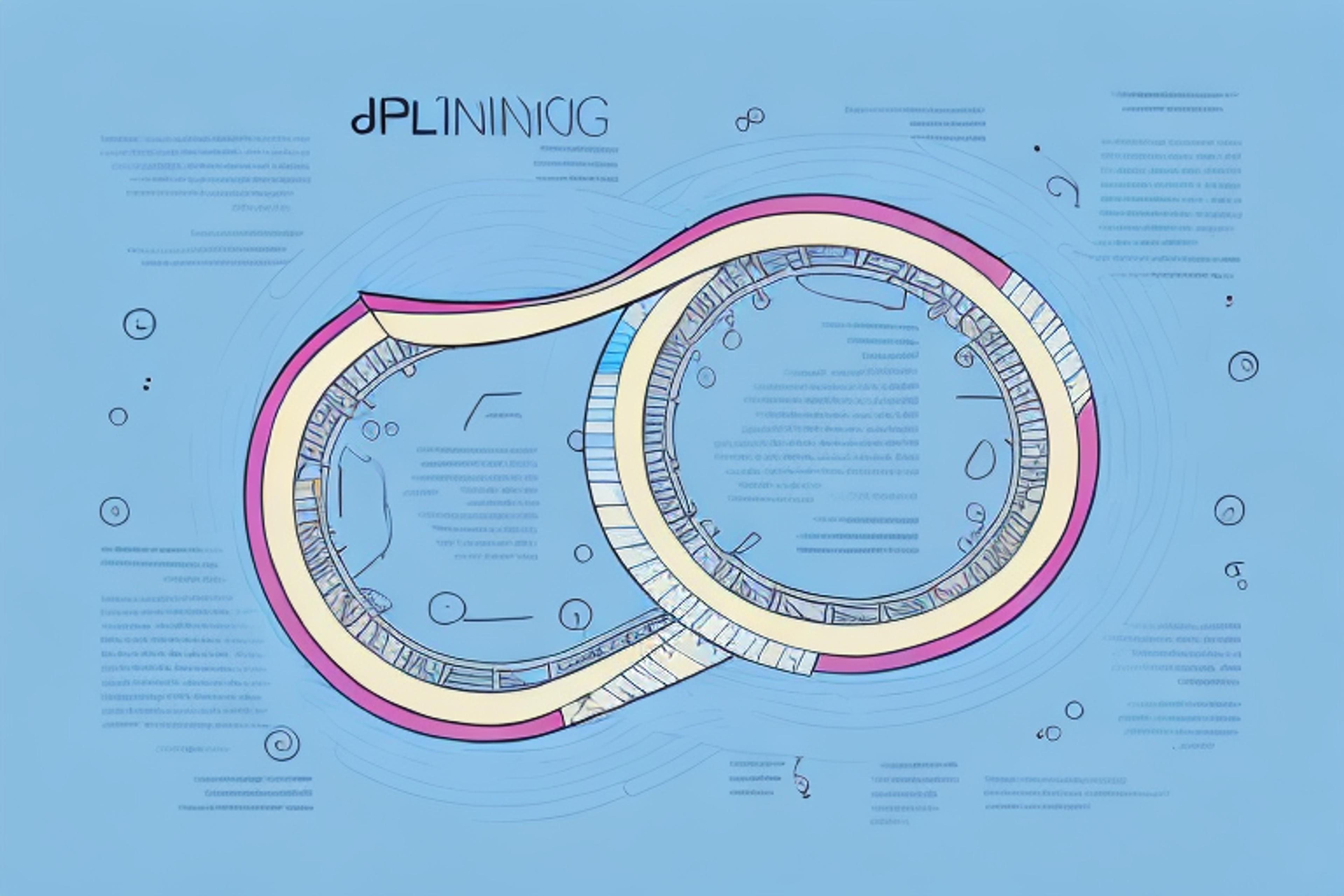How to Prepare for Accenture Management Consulting Behavioral Interviews?
If you're preparing for a behavioral interview with Accenture management consulting, this article is a must-read.
Posted April 10, 2025

Table of Contents
Free Event

Featuring Christina B.
Is Management Consulting Right for You? Decoding the Career Path
Starting Thursday, April 17
11:30 PM UTC · 60 minutes

Featuring Christina B.
Getting ready for an Accenture management consulting behavioral interview can be a daunting experience. However, you can significantly improve your chances of success if you prepare for it well. In this article, we will explore the different strategies you can use to get ready for your upcoming interview.
The importance of behavioral interviews in Accenture management consulting recruitment
Behavioral interviews are a vital part of the Accenture management consulting recruitment process. The primary objective of these interviews is to assess your behavior and decision-making abilities in specific scenarios. Behavioral interviews are designed to provide recruiters with a more in-depth understanding of your skills and competencies.
During a behavioral interview, you will be asked to provide specific examples of how you have handled certain situations in the past. These questions are designed to evaluate your problem-solving skills, communication abilities, and leadership potential. It is important to prepare for these types of interviews by reflecting on your past experiences and identifying key examples that demonstrate your strengths.
Additionally, behavioral interviews are often used to assess a candidate's cultural fit within the organization. Accenture places a strong emphasis on collaboration and teamwork, and recruiters will be looking for candidates who demonstrate these qualities. It is important to showcase your ability to work well with others and to highlight any experiences you have had working in a team environment.
Understanding the STAR (Situation, Task, Action, Result) method for answering behavioral questions
The STAR method is a useful tool for answering behavioral questions during your interview. The acronym stands for Situation, Task, Action, and Result. To use the STAR method, you need to describe a specific situation you faced, the task you needed to complete, the actions you took, and the results of your actions.
One of the benefits of using the STAR method is that it helps you provide a clear and concise answer to the interviewer's question. By breaking down your response into these four components, you can ensure that you cover all the necessary information without rambling or getting off-topic. Additionally, using the STAR method allows you to showcase your problem-solving skills and demonstrate how you approach challenges in the workplace.
Tips for researching and understanding Accenture's company culture and values
One of the most crucial aspects of preparing for an Accenture management consulting behavioral interview is to understand the company's culture and values. You can visit the company website, read blogs and articles written by employees, and connect with current or former employees on LinkedIn for more information.
Another way to gain insight into Accenture's culture and values is to attend company events or webinars. These events provide an opportunity to interact with current employees and learn more about the company's mission and vision.
Additionally, researching Accenture's clients and projects can give you a better understanding of the company's values and how they are applied in real-world situations. This can also help you prepare for potential case study questions during the interview process.
How to identify and develop examples of your own behavior that align with Accenture's values
It is essential to identify specific examples of your own behavior that align with Accenture's values. You can start by reviewing your past work experiences and identifying situations where you demonstrated key skills and competencies. Once you have identified those situations, create detailed examples that you can use to showcase your abilities during your interview.
Another way to identify examples of your behavior that align with Accenture's values is to reflect on your personal values and how they have influenced your actions in the workplace. Think about times when you have gone above and beyond to help a colleague or when you have taken ownership of a project to ensure its success.
Once you have identified examples of your behavior that align with Accenture's values, it is important to develop them further. This can be done by practicing telling your stories in a clear and concise manner, highlighting the specific values that you demonstrated. You can also ask for feedback from colleagues or mentors to ensure that your examples effectively showcase your skills and align with Accenture's values.
Practicing with mock interviews and getting feedback from peers or mentors
Practicing with mock interviews is an excellent way to prepare for your Accenture management consulting behavioral interview. You can ask a friend or family member to role-play as the interviewer and ask you behavioral questions. Additionally, consider seeking feedback from a mentor or peer to help you improve your responses.
Another way to practice for your Accenture management consulting behavioral interview is to record yourself answering common behavioral questions. This will allow you to review your responses and identify areas where you can improve. You can also practice your body language and tone of voice to ensure that you come across as confident and professional.
It's important to remember that practicing with mock interviews and seeking feedback is not a one-time event. You should continue to practice and refine your responses until you feel confident and prepared for your interview. Additionally, consider researching the company and the role you are applying for to ensure that you have a strong understanding of the company's values and goals.
Strategies for demonstrating leadership skills in behavioral interviews
Leadership skills are key competencies for an Accenture management consulting role. During your interview, demonstrate how you have motivated and led teams in the past. Show how you have led successful projects and made decisions under pressure.
Another effective way to demonstrate your leadership skills in a behavioral interview is to provide examples of how you have mentored and developed team members. Talk about how you have identified their strengths and weaknesses, and provided guidance and support to help them grow and improve. Additionally, highlight any instances where you have successfully resolved conflicts within a team, and how you were able to bring everyone together to achieve a common goal.
How to showcase your problem-solving abilities in a behavioral interview
Problem-solving skills are another critical competency for an Accenture management consulting role. During your interview, showcase how you have resolved challenges in the past, highlighting your analytical skills and ability to gather data to make informed decisions.
One effective way to demonstrate your problem-solving abilities is to use the STAR method. This involves describing a specific Situation or Task you faced, the Action you took to address it, and the Result of your efforts. By using this method, you can provide concrete examples of how you have successfully solved problems in the past.
It's also important to show that you can think creatively and outside the box when it comes to problem-solving. This means being able to identify alternative solutions and considering different perspectives. During your interview, be sure to highlight any instances where you have demonstrated this type of innovative thinking.
Tips for demonstrating communication and collaboration skills in a group or team setting
Being able to work well in a group or team is an important skill in any role, including management consulting. In your interview, showcase how you have contributed to a team's success by communicating effectively and collaborating with others.
One way to demonstrate your communication skills is to actively listen to your team members. This means paying attention to what they are saying, asking clarifying questions, and providing thoughtful responses. Additionally, you can show your collaboration skills by being open to feedback and willing to compromise when necessary. This helps to build trust and respect among team members, which is essential for effective collaboration.
Another important aspect of communication and collaboration in a team setting is being able to manage conflicts. It's important to address conflicts early on and work towards finding a resolution that benefits the team as a whole. This requires strong communication skills, as well as the ability to remain calm and objective in the face of disagreement. By demonstrating your ability to manage conflicts effectively, you can show that you are a valuable asset to any team.
Preparing for common behavioral questions asked during Accenture management consulting interviews
There are several common behavioral questions that recruiters ask during Accenture management consulting interviews. Some of these include how you handle constructive criticism, how you have dealt with difficult stakeholders, and how you have managed conflicts in the workplace. You can prepare for these questions by practicing your responses and using the STAR method.
It is also important to research the company and the specific role you are interviewing for. This will help you tailor your responses to align with the company's values and goals. Additionally, it is helpful to have specific examples from your past experiences that demonstrate your skills and abilities in these areas. Remember to be honest and authentic in your responses, as recruiters can often tell when a candidate is not being genuine.
How to prepare for unexpected or unconventional behavioral questions
Sometimes, recruiters can ask unexpected or unconventional behavioral questions during your interview. To prepare for these questions, stay up to date with the latest industry news and trends and think critically about how they might apply to your experience.
Another way to prepare for unexpected or unconventional behavioral questions is to practice answering them with a friend or family member. This can help you feel more comfortable and confident when faced with these types of questions during the actual interview.
It's also important to remember that recruiters are often looking for your thought process and problem-solving skills, rather than a specific "right" answer. So, don't be afraid to take a moment to gather your thoughts and provide a well-thought-out response.
Understanding the role of technology in Accenture management consulting and how it relates to behavioral interview questions
Accenture management consulting is an industry leader in technology solutions. It is essential to understand the role of technology in the company and how it relates to behavioral interview questions. Consider how your experience with technology has enabled you to solve problems and make informed decisions in the past.
The importance of follow-up after a successful Accenture management consulting behavioral interview
Following up after a successful interview is essential in the recruitment process. After your interview, send a thank you email, expressing your gratitude for the opportunity and reiterating your interest in the role.
Common mistakes to avoid during an Accenture management consulting behavioral interview
There are several common mistakes that candidates make during Accenture management consulting behavioral interviews. Some of these include not answering the question asked, providing vague responses, and failing to use specific examples to showcase their skills. Be sure to avoid these mistakes by preparing well and practising with mock interviews.
In summary, preparing for an Accenture management consulting behavioral interview requires research, practice, and a sound understanding of your skills and competencies. Use the strategies outlined in this article to give yourself the best chance of success.


















